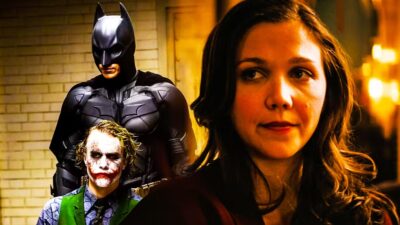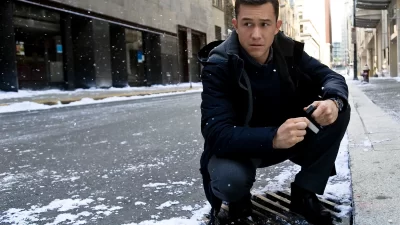The conclusion of The Dark Knight Rises continues to be a subject of intense debate among Batman enthusiasts, and justifiably so. Upon deeper reflection, it becomes evident that, contrary to its superficial appearance, the ending is far from joyous. Despite the introduction of numerous iterations of Batman since the conclusion of the Dark Knight trilogy, Christopher Nolan’s interpretation of the Caped Crusader remains among the most esteemed and cherished. Nolan’s darker, more realistic portrayal of Batman and Gotham City established a benchmark not only for future Batman adaptations but also for superhero films in general. However, this interpretation has been misunderstood for years.
The Dark Knight trilogy chronicles Bruce Wayne’s (Christian Bale) journey from the infamous trauma of his parents’ murder to his rigorous training with the League of Shadows, and his confrontations with some of the most iconic villains from the comics. The final installment of the trilogy, The Dark Knight Rises, has been the subject of relentless discussion due to the ambiguity surrounding its ending—whether Alfred is merely dreaming or if Bruce is genuinely alive and well. Upon closer examination, it is clear that the ending, while intriguing, does not constitute a happy conclusion.
The Dark Knight Trilogy Is About Bruce Wayne’s Batman Curse

Bruce Wayne undergoes a multitude of trials and tribulations in the Dark Knight trilogy, starting with the traumatic murder of his parents—a pivotal moment that propels him toward becoming Gotham City’s vigilante. The journey to embody Batman exacts a substantial toll on Bruce, as he sacrifices personal relationships for the greater good. Simultaneously, he must maintain the facade of the playboy millionaire to prevent his true identity from being unveiled. This burden of Batman extends beyond Bruce, affecting those closest and dearest to him.
In the course of the Dark Knight trilogy, the repercussions of Batman’s existence resonate through Bruce’s circle. The impact on his personal relationships is profound, leaving him with only superficial connections. Those with whom he shared a deeper bond suffered the most from the Batman curse. Rachel Dawes, for instance, perished when the Joker abducted her and Harvey Dent. This tragedy catalyzed Dent’s transformation into the villainous Two-Face and led Gotham to live a lie, shielding them from the harsh reality of Dent’s downfall.
Alfred, Bruce’s loyal guardian and paternal figure, also bears the brunt of Batman’s legacy on a deeply personal level. As the surrogate father to Bruce, Alfred witnessed the boy he raised evolve into a vigilante, nightly risking his life to combat crime. He also observed Batman’s decline between the events of The Dark Knight and The Dark Knight Rises, noting Bruce’s subsequent seclusion. While Batman served as the hero Gotham City desperately needed, his emergence came at a significant cost to Bruce and his loved ones.
The Dark Knight Rises Saves Bruce Wayne

At the conclusion of The Dark Knight Rises, Batman sacrifices himself to save Gotham City from impending destruction. He commandeers the bomb intended to obliterate Gotham and, with the aid of his aerial vehicle, the Bat, transports it far over the bay, ensuring it detonates safely away from the city. However, this heroic act ostensibly results in Batman’s demise, as it was previously established that the Bat’s autopilot was nonfunctional. Batman is presumed dead and is honored as a hero, while Bruce Wayne’s funeral is held privately, with his estate bequeathed to Alfred.
In a poignant turn of events, Alfred journeys to Florence, a place he frequented during Bruce’s earlier absences. There, he discovers Bruce alive and in the company of Selina Kyle. This ending of The Dark Knight Rises presents a duality: it is both joyful and melancholic. Bruce Wayne, in particular, attains the former. Throughout the trilogy, the audience witnesses the profound impact Batman has on Bruce, yet ultimately, Bruce finds a means to honor Batman’s legacy in Gotham while reclaiming the privacy and peace he long yearned for.
Bruce overcomes his trauma and his commitment to Gotham by breaking free from the perpetual need to be the hero. This liberation grants him the freedom, peace, and happiness he richly deserves. Adding to the significance of his newfound freedom, he shares it with Selina Kyle, who herself had struggled to escape the confines of a persona forged out of necessity.
The Dark Knight Rises Dooms John Blake

Blake was a valuable ally to Batman and Gordon throughout The Dark Knight Rises, and Bruce chose him as his heir, though not exactly of his fortune.
The melancholy aspect of The Dark Knight Rises’ conclusion revolves not around Bruce Wayne, but rather John Blake, perpetuating the aforementioned “Batman curse.” John Blake is a character whose introduction I wish had occurred earlier in the trilogy, allowing him the time and development he rightfully deserved. Officer John Blake, an orphan himself, astutely deduced that Batman was, in fact, Bruce Wayne, and urged him to resume his role as Gotham’s vigilante.
Throughout The Dark Knight Rises, Blake serves as a valuable ally to both Batman and Commissioner Gordon. Recognizing Blake’s unwavering dedication and potential, Bruce ultimately chose him as his successor—not in terms of his financial fortune, but as the inheritor of Batman’s legacy. This decision signifies a profound transfer of responsibility, ensuring the continued protection of Gotham under Blake’s vigilant watch.
Bruce found someone suitable to carry on with Batman’s legacy not because Blake was physically capable, but because he had a similar background and trauma as his.
Bruce entrusted the Batcave and all its contents to John Blake, implying that Blake would eventually assume the mantle of Gotham City’s vigilante protector. While this gesture was both emotional and exhilarating, it simultaneously condemned Blake to perpetuate the so-called Batman curse. Both men were orphans, raised in Gotham, and innately understood the city’s unique needs. Bruce chose Blake to inherit Batman’s legacy not merely for his physical abilities but because of their shared background and trauma, which forged an unwavering moral core.
The Dark Knight trilogy delves into the implications of Batman’s curse, exploring its profound impact on Bruce and his loved ones, and ultimately how it was transferred to Blake. This narrative arc renders The Dark Knight Rises’ ending bittersweet: a joyous conclusion for Bruce, who finally escaped the Batman curse, juxtaposed with a somber fate for Blake, whose future remained uncertain as he stepped into the role of Gotham’s new guardian.



